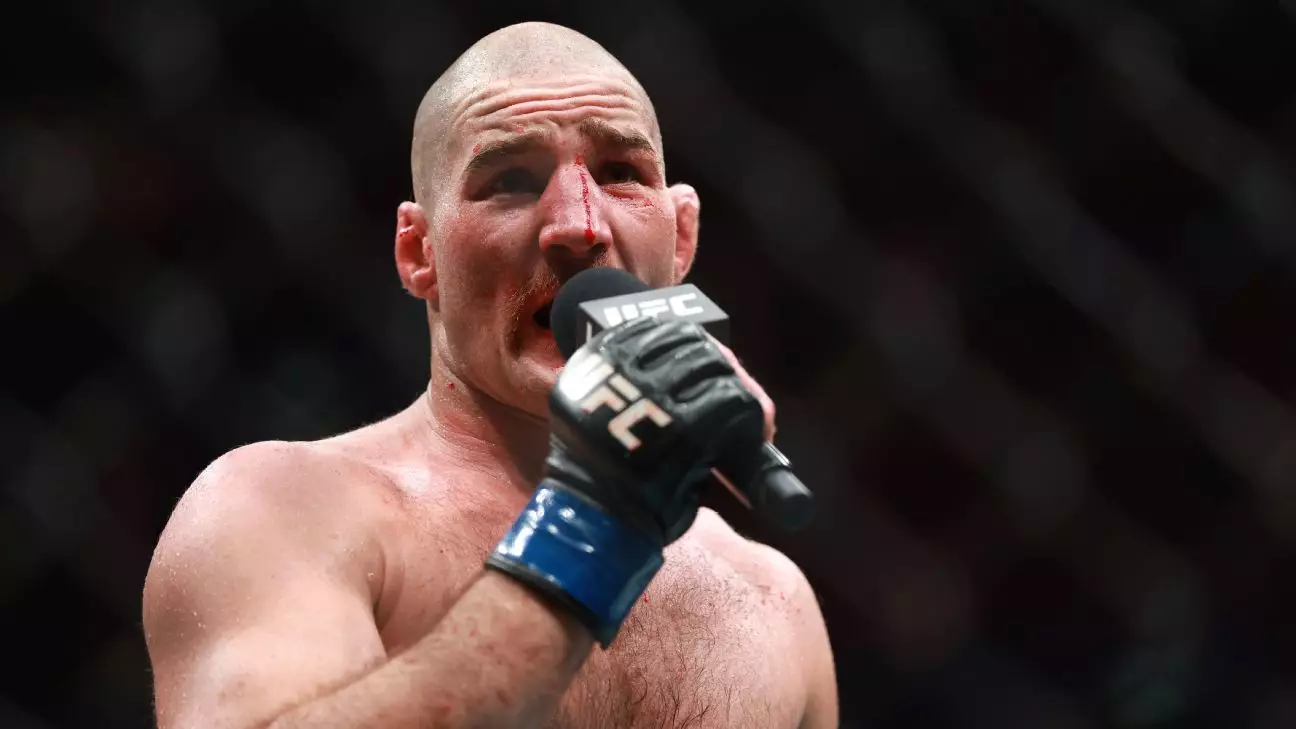In the world of competitive sports, the relationship between an athlete and their coach can produce immensely rewarding outcomes, but when tensions arise, it can also lead to significant fallout. This dynamic has recently been highlighted by former UFC middleweight champion Sean Strickland’s public fallout with his coach, Eric Nicksick. What began as a disagreement following a disappointing performance at UFC 312 has escalated into a broader examination of motivation, expectations, and the complexities of coach-athlete relationships.
After suffering a demoralizing loss to Dricus Du Plessis—a defeat marked by unanimous scorecards ranging from 50-45 to 49-46—Strickland became the center of attention for all the wrong reasons. Following the fight, Nicksick expressed his disappointment, labeling Strickland’s effort as “underwhelming” and insinuating that the fighter appeared to be “sleepwalking” during the bout. This blunt assessment, voiced in a widely viewed interview, struck a chord with Strickland, pushing him to respond defensively. He felt compelled to clarify his own motivations as an athlete and defend his approach, prompted directly by his coach’s public remarks.
The coach’s comments didn’t just critique Strickland’s performance; they also questioned his commitment and desire to compete at the highest level. Nicksick posed a question that hit hard: if Strickland’s primary motivation was financial gain, then he might not belong in the elite ranks of fighters. For a competitor like Strickland, who thrives on being recognized as a formidable opponent, such insinuations felt like a betrayal coming from a longtime mentor.
Responding to the backlash and Nicksick’s public criticism, Strickland took to social media to articulate his side of the story. He maintained a respectful tone toward his coach while expressing that their professional relationship might not continue. His statement highlights a crucial point in his career; the need to surround himself with individuals who not only support him but also share his approach and desire to succeed. Strickland’s assertion that “probably not” will Nicksick be in his corner again speaks volumes about the ramifications of negative public commentary in a highly personal and professional sport.
Strickland addressed the difficulties he faced in training for the fight against Du Plessis, revealing that he entered the Octagon not in peak condition due to a broken arm and a staph infection. This disclosure adds layers to the conversation around athlete performance and the pressures they face. While Strickland admits to his struggles, he showcased resilience when discussing his mindset during the fight. Despite sustaining a significant injury—breaking his nose three times—Strickland emphasized that he never considered quitting. Instead, he adapted and fought through the pain, a testament to his tenacity and mental fortitude.
The Fallout: Implications for Future Fights
The ramifications of this conflict extend far beyond a fleeting disagreement between a fighter and his coach. Strickland’s historical performance shows that he is capable of greatness—having won four out of five fights prior to his recent defeat. This leaves fans and commentators speculating about the future of his career and the direction he will take moving forward. The notion of changing coaches or corner personnel can drastically affect a fighter’s trajectory, often altering not just physical training but psychological considerations that stem from forging strong relationships.
The misunderstanding between Sean Strickland and Eric Nicksick exemplifies the delicate balance in coaching relationships, particularly in high-stakes environments like the UFC. Strickland’s need to redefine his corner team signals a pivotal moment in his career—not simply about finding the right coach but about establishing a supportive framework that aligns with his aspirations as a fighter. As he contemplates the future, it remains essential for Strickland to navigate this interesting juncture thoughtfully, reinforcing his commitment to success while learning from the public feud that has attracted that spotlight once more. The evolution of this situation will undoubtedly offer valuable lessons for both Strickland and others in the sport.


Leave a Reply